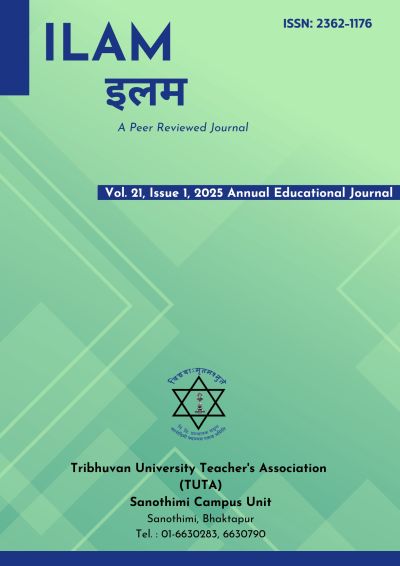Issues and Opportunity of Social Studies Education in Secondary Level Education in Nepal
DOI:
https://doi.org/10.3126/ilam.v21i1.75686Keywords:
Challenges, Digital resources, Opportunities, Social studies, Teaching methodsAbstract
This study investigates the challenges and opportunities in secondary school social studies education in Nepal, focusing on issues such as outdated curricula, traditional teaching methods, and resource limitations in schools. Social studies is very important in developing civic awareness, cultural understanding, and social responsibility among secondary-level students. However, these challenges hinder student engagement, critical thinking, and the practical application of concepts. The nature of research design being qualitative follows a descriptive approach. It utilizes both primary and secondary data sources. The primary data were collected through interviews conducted with students, social studies teachers, and the head teacher of Prakash Secondary School, Bhumlu, Kavre. The findings showed areas that needed improvement to be updated in the course of curriculum modification, namely, current issues such as climate change and digital literacy, technology integration in classrooms, and better training for teachers themselves. The study underscores the necessity for a more interactive and relevant approach to social studies education, focusing on project-based and field-based learning. . It identifies significant challenges, such as outdated curricula, traditional teaching methods, and limited resources, which affect student engagement and critical thinking. Findings from the study recommend revising the curriculum to incorporate contemporary issues such as climate change, introducing technology in the classrooms, and more training for teachers. Social studies will adopt even more student-centered and interdisciplinary learning approaches that encourage critical thinking, civic responsibility, and social engagement. Addressing these challenges will help create informed, responsible citizens and make social studies a stronger tool for societal development. The curriculum can be improved by modernizing it, enhancing teacher training, integrating technology, and promoting interactive and community-based learning.




